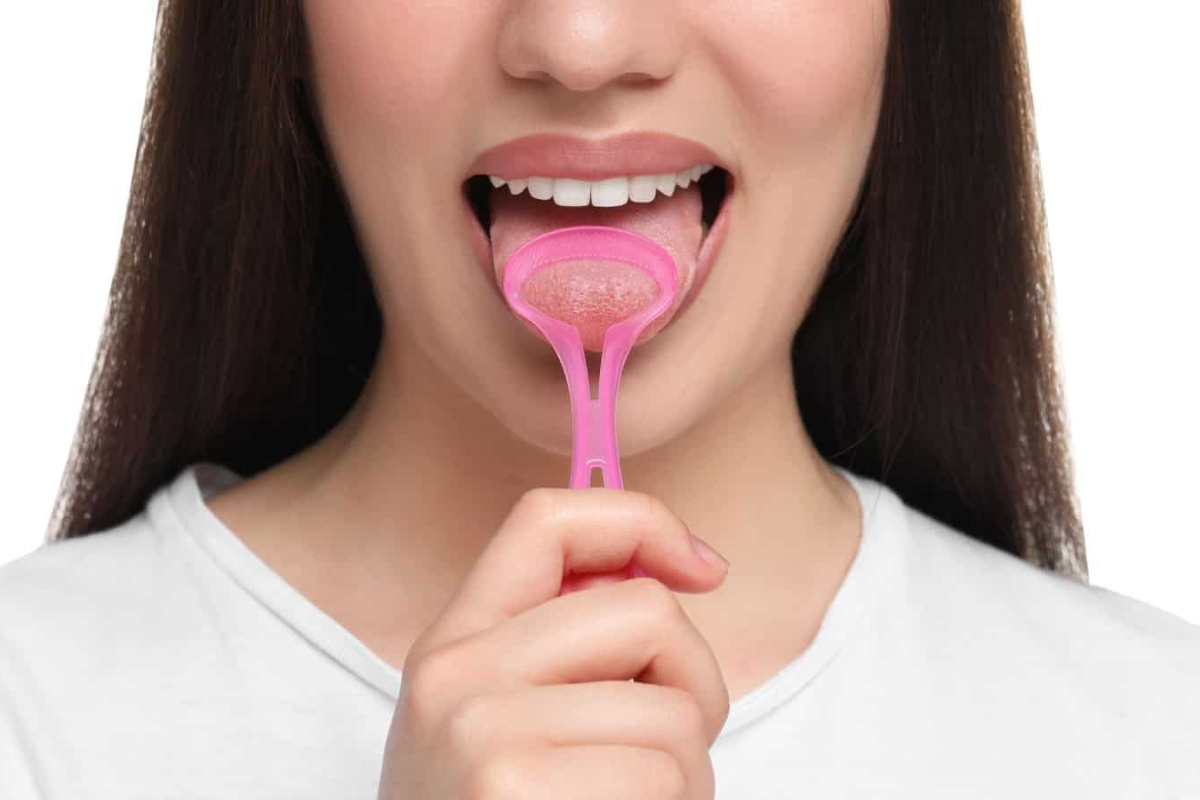We are not a registered Medicare/Medicaid Provider
How Dental Cleanings Can Prevent Gum Disease and Bad Breath?

Dental cleanings are more than just a regular visit; they are crucial for maintaining overall oral health. Regular cleanings help prevent significant issues like gum disease and bad breath, keeping your smile bright and your breath fresh.
This blog explores how these cleanings play a vital role in preventing gum disease and managing bad breath and provides tips for maintaining your oral health between visits.
The Importance of Regular Dental Cleanings
Dental cleanings are an important part of maintaining good oral hygiene. During these appointments, a dental professional removes the accumulation of tartar and plaque over your teeth and gums. Here’s why regular cleanings are so important:
- Plaque Removal: Plaque is a soft, sticky film of bacteria that forms on your teeth. It can become tartar if it is not consistently removed, and tartar is far more difficult to clean. Tooth decay and gum disease are only two of the oral health problems that plaque and tartar accumulation can cause. Professional cleanings effectively remove this buildup, helping to prevent these issues.
- Tartar Control: Tartar, or calculus, forms when plaque is not removed and hardens over time. If left untreated, tartar can cause gingivitis, an inflammation of the gums that can develop to more serious periodontal disease. Regular cleanings help control tartar levels, reducing the risk of developing gum disease.
- Detection of Problems: During a cleaning, your dentist or dental hygienist examines your mouth for early signs of issues such as gum disease, cavities, or other oral health problems. Early identification of these issues enables timely intervention, which can prevent more severe conditions from developing.
By keeping plaque and tartar under control, frequent dental cleanings are essential to preserving your oral health and preventing serious issues.
Preventing Gum Disease
Gum disease, also known as periodontal disease, begins with gingivitis, an early stage of gum inflammation. Gingivitis may progress to more severe forms of gum disease if left untreated, including periodontitis. In order to prevent gum disease, dental cleanings are crucial in several ways:
- Cleaning Beneath the Gum Line: Professional dental cleanings involve scaling beneath the gum line, where plaque and tartar can accumulate. Regular toothbrushes cannot effectively reach these areas, so a thorough cleaning by a dental professional is necessary to remove buildup and reduce the risk of gum disease.
- Gum Health Monitoring: During cleanings, your dentist or hygienist examines your gum health, looking for signs of swelling, bleeding, or other issues. Treatment options exist for early gum disease symptoms before they progress to more severe conditions. Monitoring your gum health regularly helps ensure that any potential problems are addressed promptly.
- Personalized Advice: Dentists provide personalized advice on oral hygiene practices during cleanings. This advice may include recommendations on brushing techniques, flossing habits, and the use of mouth rinses. It’s essential to brush and floss properly at home in order to maintaining healthy gums and preventing gum disease.
Regular cleanings are key to preventing gum disease by removing buildup and providing guidance on maintaining optimal gum health.
Tackling Bad Breath
Bad breath, or halitosis, is a common problem that can be brought on by a number of things, such as gum disease, inadequate oral hygiene, and other health issues. Dental cleanings can help manage this condition in the following ways:
- Removal of Odor-Causing Bacteria: Bacteria in the mouth are often responsible for halitosis. These bacteria can produce sulfur compounds that cause an unpleasant odor. During a cleaning, dentists remove these bacteria and their byproducts, which helps to freshen your breath.
- Cleaning Hard-to-Reach Areas: Dental cleanings ensure that areas between your teeth and beneath the gum line are thoroughly cleaned. These areas can be difficult to reach with a regular toothbrush and can harbor bacteria that contribute to halitosis. A professional cleaning removes bacteria from these hard-to-reach spots, reducing the risk of halitosis.
- Early Detection of Issues: Persistent bad breath can occasionally indicate the presence of underlying medical issues like gum disease or tooth decay. During cleanings, your Denville dentist can identify these potential problems and recommend appropriate treatments to address them, helping to alleviate bad breath.
By addressing the root causes, dental cleanings help maintain a fresher breath and overall oral health.
Maintaining Fresh Breath Between Visits
In addition to regular cleanings, maintaining fresh breath requires good daily oral hygiene practices. Here are some tips to help keep your breath fresh between dental visits:
- Brush Twice a Day: Brush your teeth two times a day using fluoride toothpaste. Brushing gets rid of microorganisms and food particles that can contribute to bad breath. Make sure to brush your tongue as well, as bacteria can accumulate there and affect your breath.
- Floss Daily: Flossing is vital for removing food as well as plaque that your toothbrush is unable to remove from between your teeth and behind the gum line. Daily flossing helps prevent plaque buildup and maintains fresh breath.
- Use Mouthwash: You can freshen your breath and reduce bacteria by using mouthwash. Look for a mouthwash that targets bacteria and not just breath freshening. Antimicrobial mouthwashes can be particularly effective in combating bad breath.
- Remain Hydrated: Throughout the day, sipping water helpsremove any food residue and microorganisms that may cause bad breath. Staying hydrated also helps maintain saliva flow, which is important for neutralizing acids and keeping your mouth clean.
- Avoid Certain Foods: Foods such as onions and garlic can contribute to bad breath. If you have an important event or meeting, consider avoiding these foods beforehand.
Combining regular dental cleanings with these daily habits helps ensure that your breath stays fresh and your oral health remains in top condition.
Keeping Your Mouth Healthy
One essential component of preserving oral health is getting regular dental cleanings. They are essential in avoiding gum disease by removing plaque and tartar and helping manage bad breath by eliminating odor-causing bacteria. Frequent visits to your dentist are vital for keeping your mouth in optimal condition. Don’t underestimate the importance of these cleanings—your smile and fresh breath will benefit greatly from consistent dental care.
Frequently Asked Questions
Most dental professionals recommend having a dental cleaning every six months. This frequency helps ensure that plaque and tartar are regularly removed before they can cause significant issues like gum disease and bad breath. However, some individuals with specific oral health needs may require more frequent cleanings. Your dentist will advise you on the best schedule based on your oral health status.
It is not uncommon to experience some sensitivity after a dental cleaning, especially if you have significant tartar buildup or gum inflammation. This sensitivity is typically transient, and it will go away in a few days. Should the sensitivity continue or be accompanied by pain, you should contact your dentist to make sure no underlying problems exist that require attention.
Over-the-counter products like mouthwashes, breath sprays, and breath freshening gums can help mask bad breath temporarily, but they are not a substitute for regular dental cleanings. It’s possible that these goods won’t address the root problems of bad breath, such as gum disease or dental decay. Regular cleanings are essential for removing the bacteria and tartar that contribute to persistent bad breath.

